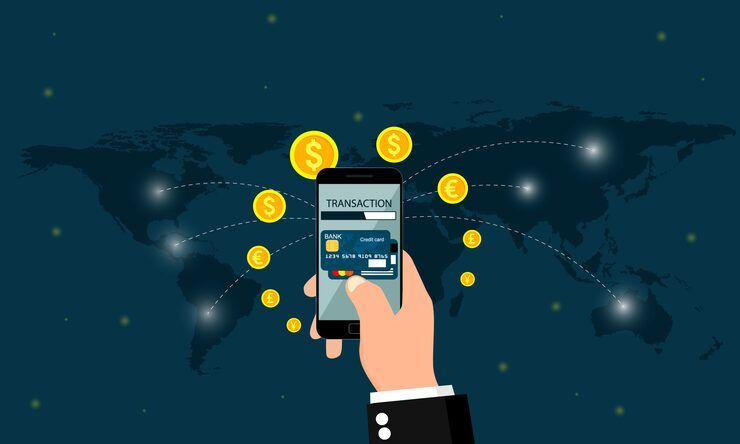Virtual wallet apps, also known as digital wallets or e-wallets, are mobile or desktop applications that allow users to store, manage, and transfer money electronically. These apps are designed to replace the need for physical cash, debit/credit cards, and even traditional banking for some transactions. Whether it's buying groceries, paying bills, or transferring funds to a friend, virtual wallets have made financial interactions faster and more accessible.
The surge in online shopping, mobile banking, and contactless payments has fueled the popularity of these apps. Consumers and businesses now rely on digital wallets for both convenience and security in day-to-day transactions.

Importance – Why This Topic Matters Today
In 2025, digital payment systems are no longer optional—they’re essential. Here's why virtual wallet apps are gaining relevance:
-
Increased Digital Transactions: More people prefer contactless and online payments post-pandemic.
-
Financial Inclusion: E-wallets help the unbanked or underbanked access digital financial services.
-
Security: Most digital wallets offer two-factor authentication, encryption, and biometric access.
-
Speed: Transactions can be completed in seconds, without the need for physical cash or bank visits.
These apps benefit:
-
Consumers, by simplifying payments and budgeting.
-
Small businesses, by enabling quick and traceable transactions.
-
Freelancers and gig workers, through easy payments and transfers.
Recent Updates – Trends and Developments (2024–2025)
Digital wallets have evolved significantly in the past year. Here are some noteworthy updates:
-
Apple Pay and Google Wallet Expansion: As of early 2025, both platforms expanded to cover over 70 countries.
-
UPI Integration: In countries like India, UPI (Unified Payments Interface) is now supported by major wallets including PhonePe and Paytm.
-
Crypto Compatibility: Apps like Coinbase Wallet and Trust Wallet are gaining traction for storing and using digital currencies.
-
AI-Powered Spending Insights: Many wallets now use AI to help users analyze spending patterns and budget more effectively.
Laws or Policies – Regulatory Environment Around E-Wallets
The digital payment industry is heavily regulated to ensure user protection and prevent financial crimes. Here’s a summary of current laws and policies:
-
KYC Requirements: Users must complete Know Your Customer verification to activate wallet services.
-
Data Protection Laws: Countries like the U.S., U.K., and India enforce strict data privacy regulations (e.g., GDPR, PDPB).
-
PSPs Licensing: Wallet providers must register as Payment Service Providers (PSPs) and comply with central banking rules.
-
Transaction Limits: Daily and monthly transaction caps are often imposed to reduce fraud and money laundering risks.
-
Consumer Protection Policies: Digital wallet providers must offer clear refund, dispute, and customer support processes.
Always check your local financial regulatory body for region-specific laws.
Tools and Resources – Popular Virtual Wallet Apps and Platforms
Below are top-performing wallet apps in 2025, offering different features depending on the user’s needs:
| App Name | Platform | Key Features | Best For |
|---|---|---|---|
| Google Wallet | Android, iOS | Contactless payments, transit passes, loyalty cards | Android users |
| Apple Pay | iOS only | Secure payments with Face ID, Apple Card integration | Apple ecosystem users |
| PayPal | All platforms | Online purchases, invoices, multi-currency | Freelancers, businesses |
| PhonePe | Android, iOS | UPI payments, bill payments, gold investment | Indian users |
| Venmo | Android, iOS | Social payments, transfers, debit card integration | Peer-to-peer payments |
| Cash App | Android, iOS | Stock & Bitcoin investing, direct deposit | Young users, freelancers |
| Revolut | Android, iOS | Currency exchange, budgeting, virtual cards | International travelers |
| Amazon Pay | All platforms | Seamless shopping on Amazon, rewards | Frequent Amazon users |
Helpful sites and tools:
-
RBI’s List of Approved Wallet Providers (India)
-
Consumer Financial Protection Bureau (CFPB) Guidelines
-
FDIC Wallet Safety Tips
-
Budgeting apps like Mint and YNAB that integrate with e-wallets
FAQs – Common Questions About Virtual Wallets
Q1: Are virtual wallet apps safe to use?
Yes, most apps use encryption, PINs, biometric authentication, and secure servers. However, users must remain cautious about phishing scams and device security.
Q2: Can I use a virtual wallet without a bank account?
Some wallets like Paytm or Cash App offer limited services without a bank account, but for full functionality, linking a bank is usually required.
Q3: Are there fees for using e-wallets?
Basic services are often free. However, some apps may charge fees for instant transfers, currency exchange, or business use.
Q4: What happens if I lose my phone with the wallet app?
Most wallets allow remote device locking or unlinking. Also, the app itself usually requires re-authentication after reinstalling.
Q5: Can I use digital wallets internationally?
Yes, but it depends on the wallet provider and regional compatibility. Apps like Revolut, Wise, and PayPal are built for global use.
Final Thoughts
Virtual wallet apps are reshaping the way we handle money. As financial services continue to digitize, e-wallets are becoming a daily necessity for millions around the world. Whether you're a tech-savvy shopper, a remote worker, or a business owner, choosing the right digital wallet can streamline your transactions, improve budgeting, and offer enhanced security.
Always review terms of service, stay updated with local laws, and use strong security practices for the best experience.
